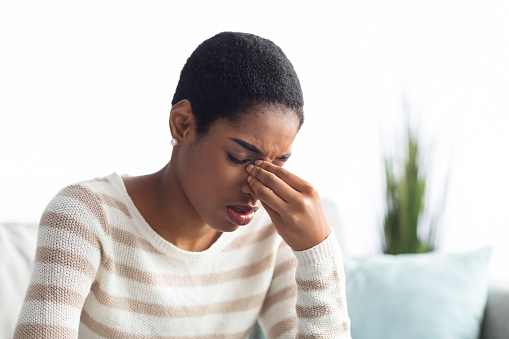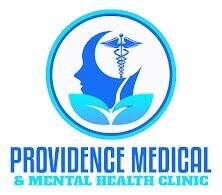Anxiety Specialist

Anxiety
Anxiety is a serious problem that interferes with the daily life of 32% of adolescents and 19% of adults. If you can’t shake anxiety, it’s time to get help from Dr. Esther Eke-Huber, PhD, APRN, ANP-C, PMHNP-BC, and the compassionate team at Providence Medical & Mental Health Clinic. They have extensive experience easing persistent fear and dread in people of all ages who face any type of anxiety disorder. If anxiety stops you from enjoying life, call the office in Houston, Texas, or schedule an in-person or telemedicine appointment online today.
What is anxiety?
Anxiety refers to feelings of fear, dread, or nervousness that appear when you face a stressful or challenging situation. These feelings trigger a natural response in your body that energizes you to meet the circumstance. Then your anxiety disappears as soon as the threat or situation passes.
If you have an anxiety disorder, the feelings don’t go away. Instead, you stay on high alert, and the fear persists or gets worse, which, in turn, affects all aspects of your life.
What are the different anxiety disorders?
There are several types of anxiety disorders. A few of the most common include:
Generalized anxiety disorder (GAD)
GAD causes frequent and excessive worry over daily life, including school, work, and health issues.
Social anxiety disorder
This disorder causes severe anxiety when you meet new people, must perform in front of others, or any time you fear others are watching or judging you.
Separation anxiety disorder
Separation anxiety disorder affects children and adults. It’s often grounded in the fear that harm will come to you or the significant people in your life when you’re separated.
Specific phobias
A phobia is a strong and irrational fear of a specific object or situation, such as needles and heights.
What symptoms does anxiety cause?
Anxiety causes a wide range of emotional and physical symptoms. You may experience:
- Fear
- Worry
- Irritability
- Nervousness
- Nausea
- Sweating
- Headaches
- Stomachaches
- Trouble sleeping
- Rapid heartbeat
You may also have a panic attack, which appears suddenly and causes chest pain, excessive sweating, and shortness of breath.
How is anxiety treated?
Providence Medical & Mental Health Clinic begins by talking with you and getting to know your unique worries and how anxiety affects your life.
After diagnosing the type of anxiety disorder, your provider recommends treatments such as:
Psychotherapy
Several types of psychotherapy effectively treat anxiety disorders. Cognitive-behavioral therapy teaches you to identify and change the way you think and react to the things that trigger your anxiety.
Another type of therapy, exposure therapy, helps you directly confront your fears rather than avoid them.
Medication
If you need medication, your provider may prescribe an anti-anxiety medication or antidepressant. Most people use anti-anxiety medications for a limited time. Antidepressants regulate the brain chemicals that ease stress and anxiety.
When needed, Providence Medical & Mental Health Clinic refers you to a specialist. For example, you may need a psychiatrist or medical doctor when your anxiety is associated with an underlying condition.
Don’t wait to get help for anxiety. Call Providence Medical & Mental Health Clinic or book an appointment online today.
